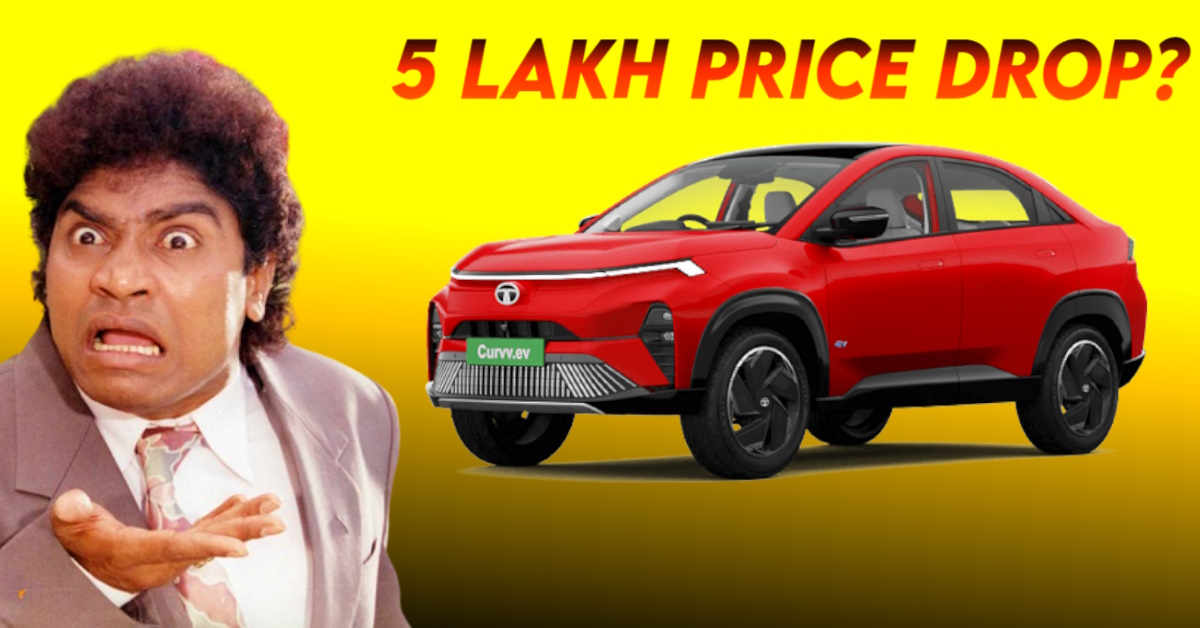Tata Tiago.EV, Punch.EV, Nexon.EV, Curvv.EV Prices Could Drop By 5 Lakh: Here’s Why


Over the last few months, sales of electric vehicles (EV) have been consistently falling in India. Now, of all the automakers, Tata Motors has been hit the hardest. So, in an attempt to give a massive boost to the sales of its electric vehicles, the company is said to be planning Battery as a Service (BaaS) offering on its EVs, according to a report on MoneyControl. Just like JSW-MG Motor’s BAAS, this battery subscription model will help in reducing the upfront costs of Tata EVs, which, in turn, will give a significant push to its sales. As per our calculations, the prices could go down by Rs 5 lakh for popular Tata EVs.
Meanwhile, here’s Tata Motors’ official statement to MoneyControl, when queried about BAAS,
Coming to the direct benefits that EV buyers can expect to enjoy if Tata Motors offers BaaS. Currently, the cost of the battery is calculated with each kWh costing $110. This means that each kWh of a battery pack, in terms of Indian Rupees, costs $110 x Rs 83 (conversion rate at the time of writing), which is equal to Rs 9,130.
So, if we calculate the pricing of the battery for each car in Tata Motors’ EV portfolio, we can determine the amount of benefit that EV buyers could enjoy. Starting with Tata’s newest EV vehicle, the Curvv EV. This new coupe SUV comes with two battery pack options – 45 kWh and 55 kWh.
According to our calculations, the costs of Curvv EV batteries come to around Rs 4.1 lakh and Rs 5.02 lakh. This means that if Tata Motors starts offering BaaS, the price of the Curvv EV will go down by the same amount.
Now, coming to other Tata EVs, the Nexon EV is offered with three battery pack options. The first is a 30 kWh battery, which costs around Rs 2.73 lakh. Then there are 40.2 kWh and 45 kWh battery packs, which, as per our calculations, cost around Rs 3.67 lakh and Rs 4.1 lakh. So, the Nexon.EV with BAAS could get cheaper by upto Rs. 4.1 lakh.
In addition to these, Tata Motors also offers the Punch EV with two battery pack options. The smaller one is a 25 kWh pack, which costs around Rs 2.2 lakh, and there is also a 35 kWh battery pack, which costs around Rs 3.19 lakh. The Punch.EV with BAAS could get up to Rs 3.19 lakh cheaper. Lastly, the company also sells the Tiago EV with two battery pack options – 19.2 kWh and 24 kWh. Both cost around Rs 1.75 lakh and Rs 2.19 lakh, which are also the amounts by which this EV could get cheaper by.
First off, we would like to explain the new BaaS model to you if you are someone who is not aware. BaaS is a leasing model where car buyers do not have to pay upfront for the cost of the battery of an electric vehicle. Under this program, the car buyer only has to pay the price of the car, and they have to rent the battery from the manufacturer.
There is a specific rate per km that the car owner has to pay to the automaker for renting the battery. With this approach, the cost of an EV comes down significantly. Also, there are multiple advantages with BaaS for the EV owner.
The first and biggest advantage, as highlighted above, is affordability. Car owners do not have to pay the hefty price tag of the battery pack. Hence, the pricing of the car becomes very competitive. With this, automakers can challenge the pricing of ICE vehicles.
Apart from the cost of the vehicle coming down, another major benefit to the owner of an EV is that they do not have to worry about the battery. BaaS reduces the stress of battery degradation and replacement, which owners are worried about at the time of buying an EV.
Lastly, with BaaS, EV owners always have the flexibility to switch to newer and more efficient battery packs. This helps in increasing the longevity of EVs and enhances the long-term ownership appeal
Tata Motors currently holds 61 percent of India’s EV market share. Unfortunately, in the last few months, its market share has been decreasing significantly. Last year, the same market share was around 68 percent. For this reason, many experts believe that if Tata Motors wants to keep its market share, it will have to start offering its EVs with BaaS.
Also, another important reason for Tata Motors to start offering BaaS in India is to fight off the slowing EV demand due to the removal of subsidies. Recently, the government of India discontinued the subsidies for electric cars, and this has had a major impact on the sales of EVs.